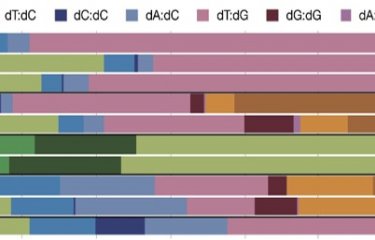Researchers at the Institut Pasteur, a Carnot-labeled institute, have developed an innovative technology: "lymphoid organ-on-chip" devices that are capable of simulating the human immune system’s response to booster vaccines. This breakthrough could provide a versatile preclinical system to evaluate vaccine candidates in the face of rapidly evolving pandemics such as that caused by the SARS-CoV-2 virus.
Lisa Chakrabarti’s team, from the Virus and Immunity Unit at the Institut Pasteur, has developed an artificial "lymphoid organ-on-chip" system mimics how human immune cells interact when exposed to a vaccine. The article entitled “Modeling memory B cell responses in a lymphoid organ-chip to evaluate mRNA vaccine boosting” was published on October 7, 2024, in the Journal of Experimental Medicine.
DAddressing the variability of vaccine responses
When the researchers exposed the lymphoid organ-on-chip to the SARS-CoV-2 Spike protein, blood derived B cells and T cells seeded into the chip became active and clustered together, just as they do in real lymphoid organs. The B cells then matured and began to produce antibodies capable of neutralizing SARS-CoV-2.
The presence of multiple other types of circulating immune cell types allowed the lymphoid organ-on-chip system to respond to mRNA based COVID vaccines as well.
By comparing lymphoid organ-on-chips created with blood samples from different donors, Lisa Chakrabarti and colleagues could observe a variety of responses. Some chips responded equally well to the different types of mRNA booster vaccines, while others showed a stronger response for either the monovalent or bivalent vaccine.
“This illustrates the diversity of immunological histories in the population and the resulting individual variability in vaccine responses,” noted Raphaël Jeger-Madiot, a postdoctoral researcher in the Virus and Immunity Unit at the Institut Pasteur and first author of the article.
“In the face of such variability, a lymphoid organ-on-chip could provide a useful preclinical system to evaluate the capacity of candidate vaccines to induce neutralizing antibodies against current SARS-CoV-2 variants in different human populations. This should be an asset in the face of a rapidly evolving SARS-CoV-2 pandemic,” added Lisa Chakrabarti.
“Organs-on-chips”: a promising technology
The immune system’s response to a vaccine is coordinated in secondary lymphoid organs, such as the lymph nodes and the spleen, where various types of immune cell gather and interact to spur the development of specific antibody-producing B cells.
Lisa Chakrabarti’s team created an artificial version of these organs by embedding small samples of human blood cells in a 3D collagen matrix on tiny microfluidic chips.
These lymphoid organs-on-chips can then be perfused with viral proteins or RNAs used in current vaccines.
“The continuous perfusion of microfluidic chips with antigens and nutrients greatly facilitates the growth and activation of immune cells,” explains Samy Gobaa, head of the Biomaterials and Microfluidics platform at the Institut Pasteur, which is rolling out organ-on-chip technology developed by the biotech firm Emulate® (Boston, USA). “This technology accurately reproduces the physiological characteristics of different tissues or organs on a microfluidic chip,” explains Samy Gobaa.
Using organ-on-chip makes it possible to implement on three items that aim to minimize animal experimentation by refining, reducing, and replacing the use of animals in research as soon as possible (the 3Rs guiding principles: Replace, Reduce, Refine), which is a commitment for the Institut Pasteur.
This work was supported by the Carnot label. Founded in 2006, the Carnot Label, granted by the French government, was designed to develop partnership-based research, meaning research conducted by public laboratories in partnership with socio-economic players, primarily industry (from SMEs to large corporations), to serve their needs.
A Carnot Institute is a research organization which places partnership research led with, and for, industry, at the heart of its strategy. Carnot institutes are recognized for both their high scientific standards and their professionalism and commitment to developing high quality partnership research.

Caption: After exposing the lymphoid organ-on-chip to viral proteins, activated T cells (in purple) and B cells (in cyan) cluster together to promote antibody production, just as they do in real lymphoid organs.
Credit: © 2024 Jeger-Madiot et al. Originally published in the Journal of Experimental Medicine. https://doi.org/10.1084/jem.20240289





